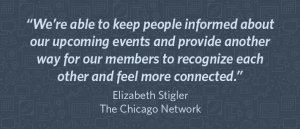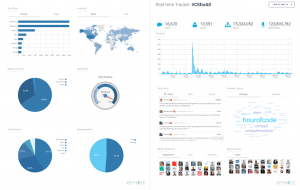By Clint Rainey
On the whole, startup founders seem to have been busy this year enjoying the spoils of their hard labor: Their median salary, according to a new report by the startup-focused accounting firm Pilot, has increased by 15%. But then another pattern jumps out: The biggest change in the annual survey, released on Tuesday, was in the proportion of founders who paid themselves absolutely nothing at all: It grew by 30%, from 5.5% of respondents to 7%.
How much they should take home is a thorny question that’s plagued founders—and at times infuriated onlookers—and has been exploited to garner fawning press. Because founders tend to set their own pay packages, the data is hard to come by, which is why Pilot began publishing this report three years ago.
Contrast this with CEO pay at publicly traded companies, frequently the source of a hot, very well-publicized debate. That figure, of course, has been rising steeply for years. Critics of exorbitant executive compensation, like Senator Bernie Sanders of Vermont, often cite a CEO-to-worker pay gap in the 400-to-1 range. But Fast Company‘s new special report on pay ratios at public companies chronicles how the gap can get even more depressing than that.
Take Live Nation CEO Michael Rapino, for example, who outearns the average employee 5,414-to-1. Or Ryan Napierski, CEO of the multilevel-marketing personal care company Nu Skin, who makes 9,416 times more.
A “unique snapshot” into founder pay
For 2023, Pilot says 750 different founders participated in its survey, a broad enough assortment to provide a “unique snapshot of real-world data from across the globe.” So, what did this year’s data reveal?
If the cohort earning zero is included, the average founder’s salary was $121,000 per year, and the median was $115,000. At the top end was one outlier who’d scraped together $755,000, but 40% of founders said they paid themselves less than $100,000.
Meanwhile, the average amount of fundraising that startups raised in 2023 also increased—by nearly 50%, from $8.1 million to $12 million. This, though, is offset by an even larger increase in founders who are bootstrapping their startups: Their numbers grew by 180%, from 4.5% to 11.5% of respondents in 2023.
Pilot used this to break down founder pay by the amount of capital raised. In general, VC-backed founders made higher salaries than their bootstrapped counterparts. While a quarter of both groups earned between $50,000 and $100,000 per year, just 4% of the VC-backed crowd was paid $0, versus 29% of the bootstrapped founders. But then 29% of the VC-backed group made between $100,000 and $150,000, while a mere 9% of the bootstrapped group pocketed that amount.
VC-backed or not, their salaries still aren’t especially high. Maybe it shouldn’t raise eyebrows to learn that nobody’s making a killing at early-stage startups. But data also suggests this mentality may end up baked into the cake: On a list of the most fairly paid CEOs compiled from Fast Company‘s special report, 11 of the top 15 executives were company founders. Among them was Brian Chesky of Airbnb, who made $311,233 in 2022—just $75,000 more than his average employee—and Adam Foroughi of AppLovin, a billion-dollar mobile technology company, who last year earned $104,355, less than the median salary of $139,502.
So what happens to pay as startups grow? According to Pilot’s data, 40% of respondents were from companies with five people or fewer, while 16% employed more than 25 full-time employees. The median founder salary for startups with five or fewer employees was $93,000, while the median for more than 50 employees was $200,000. The highest salary for fewer than five was $500,000, and the highest salary for more than 50 was $400,000.
All this suggests that when you found a company, there’s a good chance your pay will go up as the company grows—especially if you start at zero.
(15)
Report Post







